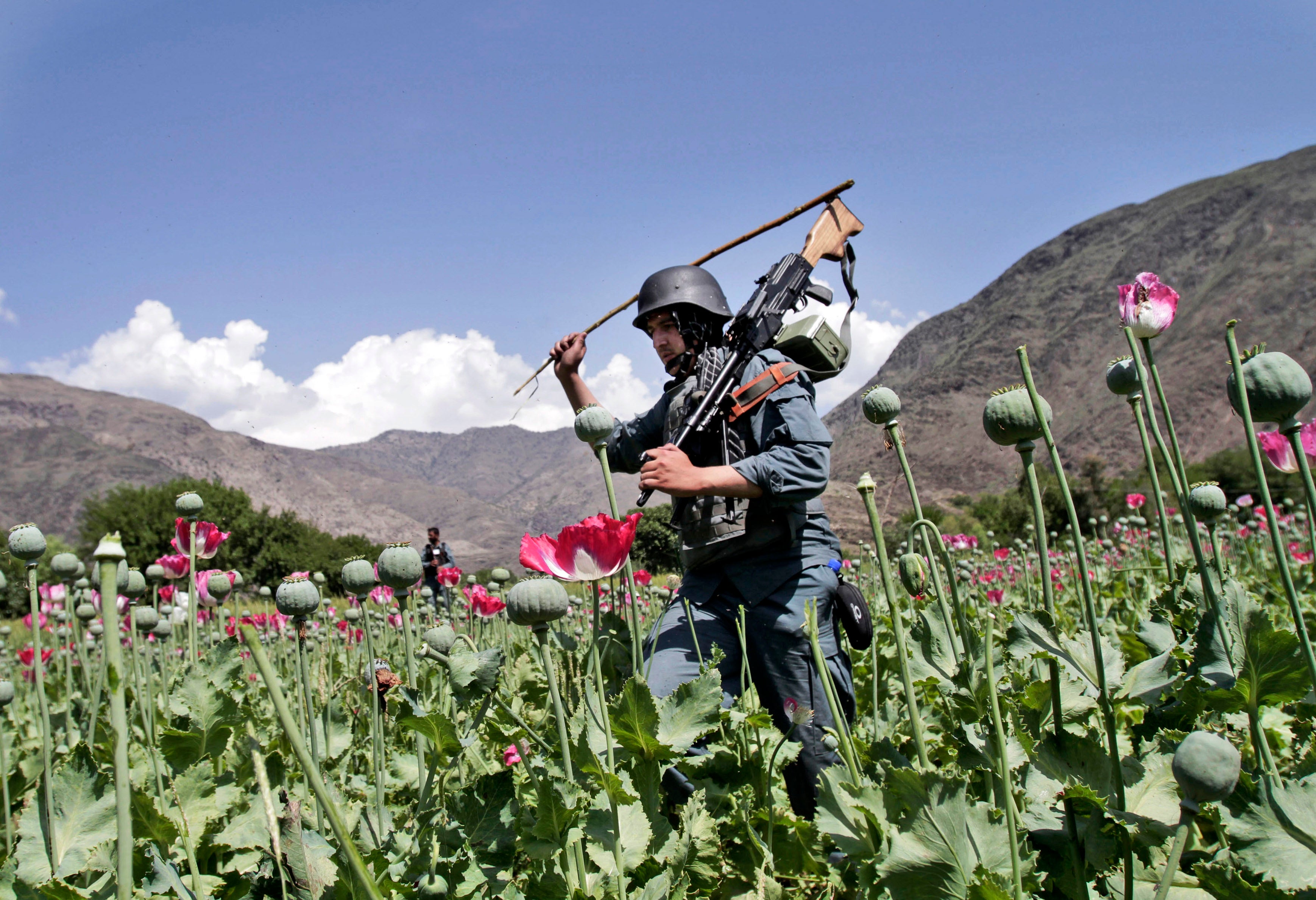Afghan farmers lose income of more than $1 billion after the Taliban banned poppy cultivation
A report from the U.N. drugs agency says Afghan farmers lost more than $1 billion of cash income from opium sales after the Taliban banned poppy cultivation

Your support helps us to tell the story
From reproductive rights to climate change to Big Tech, The Independent is on the ground when the story is developing. Whether it's investigating the financials of Elon Musk's pro-Trump PAC or producing our latest documentary, 'The A Word', which shines a light on the American women fighting for reproductive rights, we know how important it is to parse out the facts from the messaging.
At such a critical moment in US history, we need reporters on the ground. Your donation allows us to keep sending journalists to speak to both sides of the story.
The Independent is trusted by Americans across the entire political spectrum. And unlike many other quality news outlets, we choose not to lock Americans out of our reporting and analysis with paywalls. We believe quality journalism should be available to everyone, paid for by those who can afford it.
Your support makes all the difference.Afghan farmers have lost income of more than $1 billion from opium sales after the Taliban outlawed poppy cultivation, according to a report from the U.N. drugs agency published Sunday.
Afghanistan was the world’s biggest opium producer and a major source for heroin in Europe and Asia when the Taliban seized power in August 2021.
They pledged to wipe out the country’s drug cultivation industry and imposed a formal ban in April 2022, dealing a heavy blow to hundreds of thousands of farmers and day laborers who relied on proceeds from the crop to survive. Opium cultivation crashed by 95% after the ban, the report from the U.N. Office on Drugs and Crime said.
Until 2023, the value of Afghanistan’s opiate exports frequently outstripped the value of its legal exports. U.N. officials said the strong contraction of the opium economy is expected to have far-reaching consequences for the country as opiate exports before the ban accounted for between 9-14% of the national GDP.
Afghans need urgent humanitarian assistance to meet their most immediate needs, absorb the shock of lost income and save lives, said UNODC executive director, Ghada Waly.
“Afghanistan is in dire need of strong investment in sustainable livelihoods to provide Afghans with opportunities away from opium," she said.
Afghans are dealing with drought, severe economic hardship and the continued consequences of decades of war and natural disasters.
The downturn, along with the halt of international financing that propped up the economy of the former Western-backed government, is driving people into poverty, hunger, and addiction.
A September report from the UNODC said that Afghanistan is the world's fastest-growing maker of methamphetamine, with seizures of the synthetic drug increasing as poppy cultivation shrinks.
Lower incomes along the opiate supply chain could stimulate other illegal activities like the trafficking of arms, people or synthetic drugs, the most recent UNODC report said.